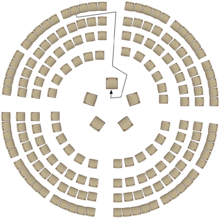Proposal to Head of School
Development of Qualitative Research Education Unit in School of
Psychology
Dr Paul Rhodes, Clinical Psychology Unit
Background
An informal research support group was developed 18 months
ago, Qualitative Research in Psychology (QRIP), to support qualitative
researchers in the School of Psychology. Fortnightly meetings have been held
since this time focussing on educating students on the full gamut of
qualitative research knowledge, from epistemology to design, methods, data
collection techniques, data analysis methodologies, rigour, coding, writing up,
publishing and more.
Methods explored have included thematic analysis, grounded theory,
discourse analysis, conversational analysis, interpersonal process recall,
interpretative phenomenological analysis, narrative inquiry, community-based
participatory action and more.
This material is presented in an informal setting, involving
discussion and development of current research and serves to augment lectures
given in the school. Many of the group meetings have involved interview role
playing, collaborative research design, collaborative coding and many other
activities that are most suitable for a group setting.
Achievements to Date
Since QRIP’s inception 87 students and academics have
joined, from the School of Psychology, but also from Health Sciences, the
Medical School, Social Work, Occupational Therapy and other affiliated
disciplines. Fifteen to twenty students and academics attend meetings,
depending on content, and a majority are Honours, DCP and PhD students from the
School of Psychology. Many of these students have teamed up to work together in
between meetings, particularly for cross coding purposes. Formal feedback concerning student
satisfaction and feedback regarding these groups will be sought at the end of
2012 and annually from then.
The remaining members
are supported by our listserve, our Usyd E-Community site, our blog and
occasional one-to-one meetings conducted by myself. The blog has proved a
particularly innovative and effective resource, well suited to the way in which
students source information and interaction. The blog receives approximately
500 hits per week by those seeking advice on qualitative research, including
our own students.
http://qual-rip.blogspot.com.au/.
It appears as the second international Google search item under search terms
‘qualitative research psychology.’ It has also been recently recommended by the
British Psychology Societies Readers Digest to U.K Psychologists. Recognition and encouragement has also come
from Prof. Lyn Richards (Founder of QSR International), "
Love your blog – and your openness and
practical de-mystifying approach. Qualitative research needs so much more of
such input – and an ability to laugh at itself".
This group has also been recognised by the Institute of
Teaching and Learning, University of Sydney, including an article in their
regular Newsletter and presentation at ITL Seminar. I am also presenting
related material at The Australian
Conference on Science and Mathematics Education (The 18th UniServe
Science Conference). Rhodes, P. What standards should be set for
qualitative research conducted in a science faculty: Psychology, rigour and the
politics of evidence. A
close relationship with The Centre for Values, Ethics and Law in Medicine,
University of Sydney has also developed, including research supervision of our
students being supported by their academics and exchanges in teaching
responsibilities.
Given these developments I am proposing that QRIP be
developed into the Qualitative Research Education Unit, hosted by the School of
Psychology.
Objectives
1. To provide technical support to research students in the
School of Psychology conducting qualitative research
2. To promote methodological diversity in qualitative
research in the School.
3. To promote high standards of rigour in qualitative
research in the School, including the use of methods to ensure dependability
and credibility of findings.
4. To foster collaboration with other academic qualitative
researchers in the University of Sydney and other Universities, who can further
support research students in the School of Psychology, providing specific
technical expertise when required, including serving as Associate Supervisors.
5. To actively advocate for the further recognition of
qualitative research in the School of Psychology and Psychology as a field.
Functions
Many of the functions of the Unit would be consistent with
QRIP as it now stands.
1. Provision of regular education and research support group
meetings
2. Provision of Digital resources: Listserve, Usyd
E-Community and Blog resource
3. Provision of one-to-one consultations for research
students in the School of Psychology
Additional functions would include:
4. Development of a group of Academic Associates to support
the endeavours of the Unit and research students in the School of Psychology
5. Hosting regular small seminars with guest speakers to
support research students in the School of Psychology
6. Develop and advocate for clear standards of excellence in
the design and conduct of qualitative research in psychology
7. Support a mentoring system between students at different
levels of research, providing opportunities for PhD students to gain experience
in supporting research students.
Proposed Outcomes
1. Increased number of research students including
qualitative methods in their research, where appropriate.
2. Increased standard and rigour of qualitative research
conducted by students in the School of Psychology.
3. Greater number of students asking and answering questions
that are suitable for qualitative research, including therapeutic process
research, research on reflective practice, community-based action initiatives,
consumer-driven research.
4. Enhanced pool of Associate Supervisors and technical
expertise available to students.
5. Further recognition of the School of Psychology as
supporting innovation and diversity in research.
6. Enhanced capacity to manage larger numbers of students
requiring supervison.
Structure
To date QRIP has been essentially coordinated informally, with feedback from students. I am seeking to change this by:
1. Convening a committee to meet once every four months to
discuss directions and organisation of events, made up of both academic and
student representatives.
2. Committee would also conduct annual reviews of both
student satisfaction and outcomes (including number and quality of
publications)
3. Report to Head of School each year on achievements and
future goals.
4. Development of a central web page, linked from School of
Psychology from which the details regarding meetings, events, blog could be
accessed.
Dr Paul Rhodes
Senior Lecturer
Clinical Psychology Unit.











